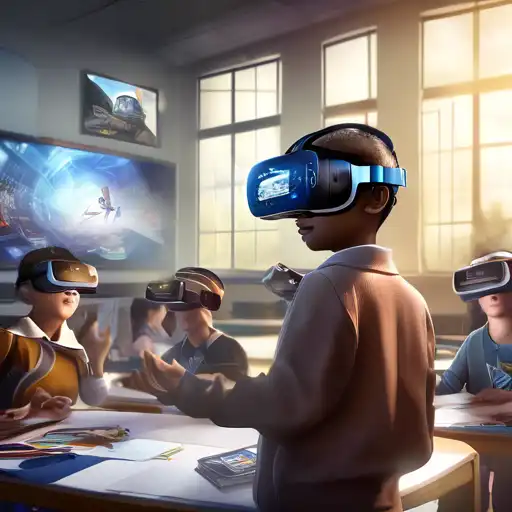Revolutionizing Learning: The Impact of Virtual Reality in Education
Virtual Reality (VR) is transforming the educational landscape, offering immersive learning experiences that were once unimaginable. This technology is not just a tool for entertainment but a powerful educational instrument that can enhance understanding, retention, and engagement among students of all ages.
The Benefits of VR in Education
VR in education brings numerous benefits, including:
- Enhanced Engagement: VR captivates students' attention like never before, making learning more interactive and enjoyable.
- Improved Retention: Immersive experiences help students retain information more effectively than traditional methods.
- Accessible Learning: VR can simulate environments and scenarios that are otherwise inaccessible to students, such as historical events or distant planets.
- Safe Practice Environment: It provides a risk-free platform for practicing skills, from surgical procedures to mechanical repairs.
Implementing VR in Classrooms
Integrating VR into educational settings requires careful planning and consideration. Schools and institutions must:
- Invest in quality VR equipment and software.
- Train educators on how to effectively incorporate VR into their curriculum.
- Ensure content is aligned with educational standards and learning objectives.
For more insights on integrating technology in education, explore our EdTech Trends page.
Challenges and Considerations
Despite its potential, VR in education faces several challenges:
- Cost: High-quality VR setups can be expensive, limiting access for some institutions.
- Technical Issues: VR technology is still evolving, and technical glitches can disrupt learning.
- Health Concerns: Prolonged use of VR headsets may cause discomfort or motion sickness for some users.
The Future of VR in Education
The future of VR in education is bright, with advancements in technology making it more accessible and effective. As VR becomes more mainstream, we can expect to see:
- More affordable and user-friendly VR solutions.
- Greater emphasis on collaborative VR learning experiences.
- Integration with other emerging technologies, such as artificial intelligence (AI) and augmented reality (AR).
For further reading on the future of learning technologies, visit our Future of Education section.
Conclusion
Virtual Reality is ushering in a new era of education, offering unparalleled opportunities for immersive and interactive learning. While challenges remain, the potential benefits of VR in enhancing educational outcomes are undeniable. As technology continues to evolve, so too will the ways in which we learn and teach.
